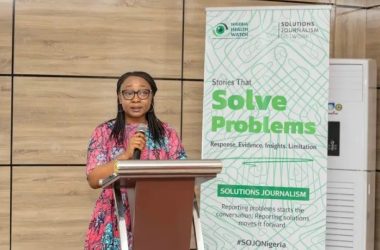By Kemo Cham
Robert B. Zoellick, president of the World Bank Group, has warned that Africa was bound to remain affected by the effects of the global food, fuel and economic crisis for some time, and that it was important that focus is directed towards protecting the most vulnerable while laying the foundations for future productivity and growth. The World Bank boss’ made this warning in the Ethiopian capital, Addis Ababa, at the end of an eight-day Africa tour that saw him through to three countries(Sierra Leone, Cote d’Ivoire and Ethiopia). “We still face considerable risks in 2010 and must work to repair the damage to human lives from the global economic crisis,” he said. Success, he stressed, would depend on making the continent a more attractive destination for investment, on donors providing adequate support, notably to countries emerging from conflict, and working with Africans to ensure that each dollar spent has an impact on overcoming poverty. “we must ensure that Africa’s robust growth rates of the past two decades are not a one-off event and that the basis for future productivity and growth are put in place to help overcome poverty on the continent,” the he said. The World Bank boss believes investments across Africa aimed at expanding its share of global and intra-African trade while fostering regional integration was essential in efforts to addressing longer term challenges. This, he noted, goes alongside building of crucial infrastructure in energy, transport and irrigation needed to promote agriculture and manufacturing. But the three nation tour of the continent also appear to have left a positive impression of the head of the World Bank as regard the stance taken by some African governments. “I leave Africa impressed by the actions many governments have taken to cope with the global economic crisis,’’ he said, adding, however, that he was ‘‘also aware that governments and their partners, like the World Bank Group and others, must work harder to expand opportunities and improve prospects for economic growth.’’ He said the progress he’d seen across the region, especially in fragile and post-conflict countries, has confirmed his belief in the continent’s potential to become another source of growth for the world economy. During a breakfast forum hosted jointly on the sidelines of the AU summit by Zoellick and the African Development Bank President Donald Kaberuka,
Meeting with African leaders:
At a meeting with African leaders, the World Bank boss heard them committed themselves to doing more not only to lift the many barriers to more private sector investment in the Information and Communications (ICTs) sector, but also to expand the opportunities more generally for the private sector in their respective countries. Records show that the private sector has driven technological progress across Africa with investment worth of about $60 billion between 1998 and 2008 in ICTs. Today, sixty-five percent of Africans have access to wireless voice networks and some 400 million mobile phones are now in use, according to the statement by the World Bank’s communications division. The statement reported that the World Bank has signed a Memorandum of Understanding with Microsoft aimed at helping Africa keep pace with fast-changing technology systems, increase access by African small businesses to ICTs, and expand support for affordable remittance transfers to the continent. The visiting World Bank boss sought to assure African leaders gathered in the Ethiopian capital of Addis Ababa of his group’s continued support to initiatives they are taking to stimulate their economies and take advantage of a rebound in global growth and trade. Support would also be provided to projects aimed at providing reliable, clean and affordable electricity to homes and enterprises, while harnessing renewable forms of energy like hydro, solar, and wind, and improving efficiency in thermal generation and addressing climate change. He added that the Bank is pioneering new ways to draw private investors to Africa.
Trending :
- 13 hours ago
- Lawyer Martin Calls For President Adama Barrow’s Removal
- 13 hours ago
- Gambia’s Midyear Budget: Revenue Jumps But Deficit Remains
- 14 hours ago
- Assan Martin Warns Gambian Politicians: “Political Suicide Awaits The Ambitious”
- 15 hours ago
- Vendors Struggle As Serekunda Market Relocation Presents New Challenges
- 2 days ago
- GPA Staff Sent Home Over Multi-Million Dalasi Financial Scandal But…




